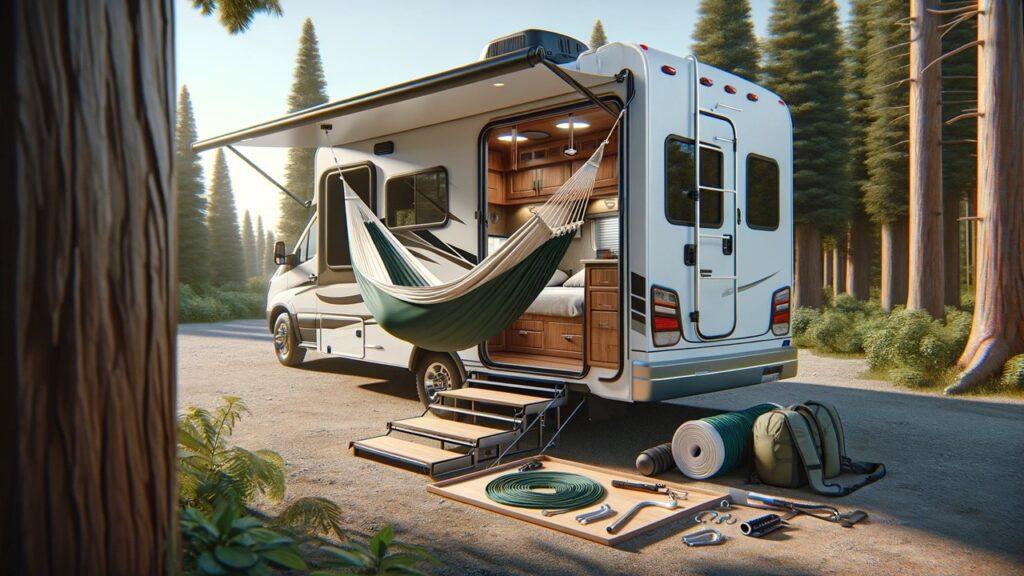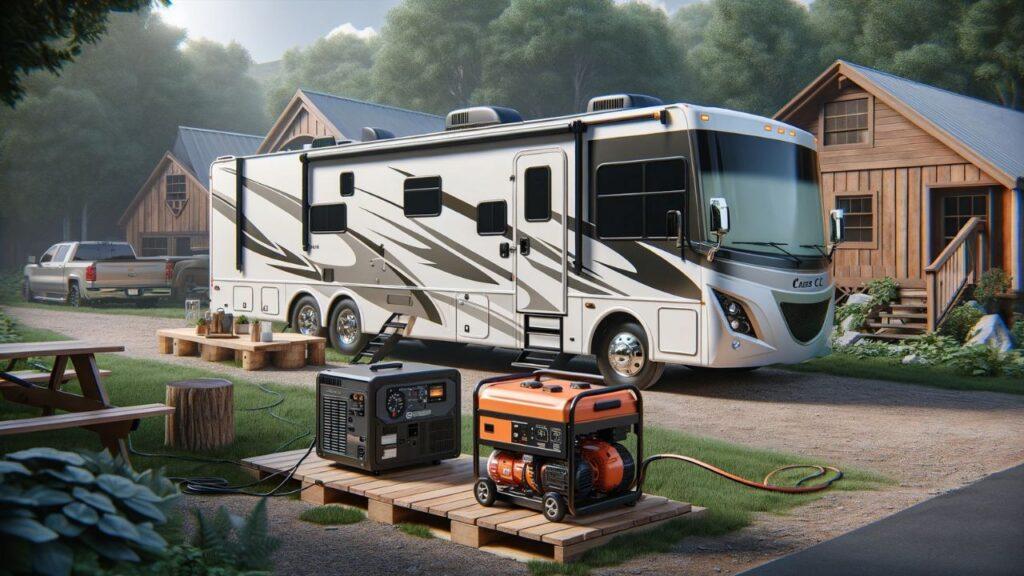
Traveling in an RV offers unparalleled freedom and adventure, allowing you to explore the world with the comforts of home. However, maintaining your RV’s water system is crucial to prevent blockages and leaks, ensuring your trips remain enjoyable and stress-free. This guide covers the essential steps for maintaining water systems in your RV to prevent blockage and leaks, offering practical advice to keep everything running smoothly.
Understanding Your RV Water System
Your RV water system is the heart of your mobile home, ensuring you have access to clean water and proper waste disposal. It includes the RV fresh water tank, RV water pump, plumbing lines, and waste tanks. Understanding how these components work together helps you troubleshoot issues and maintain the system effectively.
Routine Maintenance for RV Water Systems
Keeping your RV water system in top shape requires regular maintenance. This not only ensures everything works smoothly but also helps you avoid unexpected problems on the road.
Inspecting and Cleaning the Fresh Water Tank
The fresh water tank stores the water you use for drinking, cooking, and cleaning. Keeping it clean is essential for maintaining water quality and preventing blockages.
Every few months or after long trips, drain the tank and clean it with a mild bleach solution (1/4 cup of bleach to a gallon of water). This disinfects the tank and removes any buildup.
Make sure to rinse thoroughly to get rid of any bleach residue. Regularly inspect the tank and its connections for leaks, and repair any leaks immediately to avoid water damage.
Maintaining the Water Pump
The water pump is crucial for delivering water from the fresh water tank to your faucets and appliances. Ensuring it’s in good working order is key to a reliable water supply.
Check the pump’s pressure settings to make sure they’re correct; this prevents overworking the pump, which can lead to leaks. Regularly inspect the pump for signs of wear and tear, and replace any worn-out parts to maintain optimal performance.
Caring for Plumbing Lines
The plumbing lines carry water throughout your RV, and keeping them in good condition is essential to prevent blockages and leaks.
During winter, use RV-safe antifreeze to protect the pipes from freezing and cracking. Periodically flush the plumbing system with clean water to remove any buildup of minerals or debris.
Regularly check for leaks in the plumbing lines and connections, tightening any loose fittings and replacing damaged hoses as needed.
Managing the Waste Tanks
Proper management of the grey and black water tanks is essential for preventing blockages and maintaining a sanitary environment.
Use enzyme treatments to break down waste in the tanks, preventing clogs and odors. Empty the waste tanks regularly, especially during long trips, and always use appropriate disposal facilities to avoid environmental harm. After dumping, flush the tanks with clean water to remove any residue and prevent buildup.
Routine maintenance is a continuous process. By consistently performing these tasks, you can prevent many common issues and ensure your water system remains reliable throughout your travels.
Preventive Measures for RV Water Systems
Taking preventive measures can save you a lot of headaches down the road. Here are some strategies to help you avoid blockages and leaks.
Using the Right Products
Using the appropriate products for your RV water system can significantly reduce the risk of blockages and leaks.
- RV-Specific Cleaners: These are designed to be safe for your RV’s plumbing and won’t cause damage.
- Water Pressure Regulators: Install these to prevent high pressure from damaging the pipes.
- Quality Hoses and Fittings: Invest in high-quality hoses and fittings that are less prone to leaks and blockages.
Monitoring Water Quality
Keeping an eye on the quality of water entering your RV can prevent many issues.
- Use a Water Filter: Install a filter to remove impurities from the water entering your RV. This prevents sediment buildup in the tanks and plumbing.
- Test the Water: Regularly test the water quality, especially if you’re filling up from various sources. Make sure the water is safe for use and doesn’t contain harmful contaminants.
Educating Yourself and Passengers
Understanding how to properly use and maintain the RV water system is essential. Educate yourself and your passengers on best practices to keep the system running smoothly.
- Avoiding Non-Flushable Items: Remind everyone to avoid flushing non-degradable items down the toilet to prevent clogs in the waste tanks.
- Conserving Water: Practice water conservation to reduce the strain on your RV water system and prolong its lifespan.
Taking these preventive measures helps maintain the system’s integrity and ensures a hassle-free travel experience.
Dealing with Common Issues
Even with regular maintenance, you might encounter issues like blockages or leaks. Knowing how to handle these problems effectively can save you time and stress on the road.
Addressing Blockages
Blockages can occur in various parts of your RV water system. Here’s how to tackle them:
- Use a Plunger: For minor blockages, a plunger can often resolve the issue.
- Enzyme Cleaners: For stubborn clogs, use enzyme cleaners to break down the blockage naturally.
- Professional Help: If the blockage persists, seek professional assistance to avoid damaging the system further.
Fixing Leaks
Leaks can lead to significant water damage if not addressed promptly. Here’s how to deal with them:
- Identify the Source: Locate the source of the leak. It could be from the tank, plumbing lines, or fittings.
- Temporary Repairs: Use waterproof tape or sealant for temporary fixes until you can perform a permanent repair.
- Replace Damaged Parts: For permanent solutions, replace any damaged parts, such as hoses or fittings, to prevent future leaks.
Handling common issues promptly and effectively ensures your RV water system remains functional and reliable. Regular checks and immediate repairs are key to maintaining a problem-free system.
Seasonal Maintenance Tips
Different seasons bring different challenges for your RV water system. Adapting your maintenance routine to the changing seasons can help you avoid issues and keep your system in top condition year-round.
Spring and Summer
As the weather warms up, it’s time to prepare your RV for the busy travel season.
- De-Winterizing: After winter, flush the system to remove antifreeze and inspect for any damage caused by freezing temperatures.
- Inspect Seals and Gaskets: Check and replace any worn seals and gaskets to prevent leaks during the busy travel season.
Fall and Winter
Cold weather can pose significant risks to your RV water system. Proper preparation is crucial to avoid damage.
- Winterizing: Before storing your RV for winter, drain and flush the water system. Add RV-safe antifreeze to prevent freezing.
- Store Properly: Store your RV in a covered area to protect it from harsh weather conditions that could cause damage.
By adjusting your maintenance practices to the season, you can protect your RV water system from potential damage and ensure it operates efficiently throughout the year.
Wrapping It Up!
Maintaining your RV water system is essential for preventing blockages and leaks, ensuring a smooth and enjoyable travel experience. Regular inspections, proper cleaning, and preventive measures help keep your water system in top condition. By following these guidelines, you can avoid common issues and prolong the lifespan of your RV’s water system, allowing you to focus on the adventures that await on the open road.
Related FAQs
How often should I clean my RV fresh water tank?
Clean your RV fresh water tank every few months or after extended trips to maintain water quality and prevent buildup.
What should I do if I find a leak in my RV water system?
If you find a leak, locate the source and perform temporary repairs using waterproof tape or sealant. Replace damaged parts as soon as possible to prevent further issues.
Can I use regular household cleaners for my RV water system?
It’s best to use RV-specific cleaners to avoid damaging the plumbing and components. Household cleaners may contain harsh chemicals that are not safe for RV systems.
How can I prevent my RV water pipes from freezing in winter?
Use RV-safe antifreeze in the water system and insulate exposed pipes to prevent freezing during winter storage.
Why is my RV water pump making strange noises?
Strange noises from the water pump could indicate a pressure issue, air in the system, or worn-out parts. Inspect and adjust the pressure settings, bleed the system, and replace any worn components.
What should I do if my RV water system develops a blockage?
For minor blockages, use a plunger or enzyme cleaner. If the blockage persists, seek professional assistance to avoid damaging the system further.
As outdoor enthusiasts ourselves, we understand the significance of reliable gear that can withstand the elements and support you throughout your journey. We try to provide as much real life information with our guides and how tos to the readers as possible. Our honest and transparent reviews of essential outdoor gadgets and products are rooted in testing and experience. We take great satisfaction in offering unbiased evaluations, ensuring that you can make informed decisions when investing in outdoor gear. As an affiliate website, we may earn a small commission from some of the products we feature. However, rest assured that our opinions are not influenced by this, and your trust is always our top priority.



